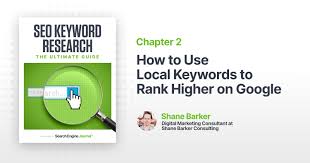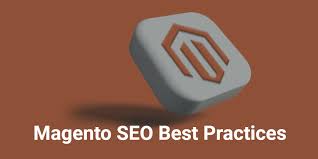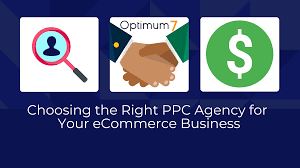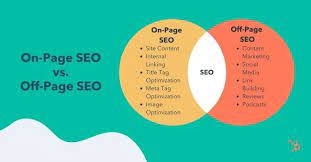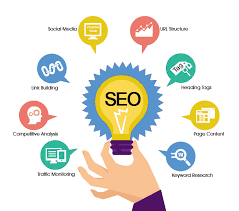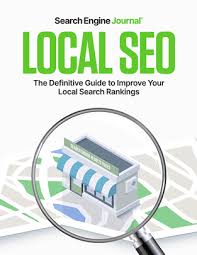Demystifying SEO for Dummies: A Beginner’s Guide to Search Engine Optimization
The Ultimate Guide to SEO for Dummies
Search Engine Optimization (SEO) can seem like a complex and daunting field, especially for beginners. But fear not, even if you’re a complete novice when it comes to SEO, this guide is here to help you understand the basics and get started on your journey to improving your website’s visibility in search engine results.
What is SEO?
SEO is the practice of optimizing your website to increase its visibility on search engines like Google. By improving your site’s SEO, you can attract more organic (unpaid) traffic and reach a wider audience.
Key SEO Concepts for Beginners:
- Keywords: These are the words or phrases that people type into search engines. By incorporating relevant keywords into your website content, you can improve your chances of ranking higher in search results.
- Meta Tags: Meta tags provide information about your webpage to search engines. Optimizing meta tags such as title tags and meta descriptions can help improve click-through rates from search results.
- Backlinks: Backlinks are links from other websites that point to your site. Quality backlinks from reputable sources can boost your site’s authority and credibility in the eyes of search engines.
- Content Quality: Creating high-quality, relevant content that addresses the needs of your target audience is crucial for SEO success. Engaging content not only attracts visitors but also encourages them to stay on your site longer.
- User Experience: A well-designed website that is easy to navigate and provides a positive user experience can lead to higher rankings in search results. Factors such as page speed, mobile-friendliness, and secure browsing are important considerations for SEO.
Getting Started with SEO:
If you’re new to SEO, here are some simple steps to kick-start your journey:
- Keyword Research: Identify relevant keywords related to your business or niche.
- Ongoing Content Creation: Regularly publish high-quality content that resonates with your target audience.
- Optimize Your Website: Improve technical aspects such as meta tags, headings, images, and site speed.
- Build Quality Backlinks: Seek opportunities to acquire backlinks from authoritative websites in your industry.
- Analyse and Adapt: Monitor your site’s performance using tools like Google Analytics and make adjustments based on data insights.
In conclusion, while SEO may seem overwhelming at first glance, mastering the basics can significantly impact the success of your online presence. By implementing sound SEO practices and staying informed about industry trends, even beginners can harness the power of search engine optimization to enhance their digital footprint.
Mastering SEO: A Beginner’s Guide to Boosting Online Visibility and Traffic
- SEO for Dummies simplifies complex SEO concepts into easy-to-understand terms for beginners.
- It provides a solid foundation for individuals looking to improve their website’s visibility in search engine results.
- The guide offers practical tips and step-by-step instructions on implementing basic SEO strategies effectively.
- SEO for Dummies empowers novices to take control of their online presence and attract more organic traffic to their websites.
- By following the guide, beginners can learn how to optimise their content and website structure without needing advanced technical knowledge.
Five Drawbacks of ‘SEO for Dummies’: Limited Depth, Outdated Information, Over-Simplification, Lack of Customisation, and Tool Dependency
SEO for Dummies simplifies complex SEO concepts into easy-to-understand terms for beginners.
SEO for Dummies is a valuable resource that excels in simplifying intricate SEO concepts into easily digestible terms for beginners. By breaking down complex ideas and jargon into straightforward explanations, this guide empowers novice users to grasp the fundamentals of search engine optimization with clarity and confidence. Whether it’s elucidating the significance of keywords or demystifying the role of backlinks, SEO for Dummies serves as a bridge that bridges the gap between unfamiliarity and understanding in the realm of SEO.
It provides a solid foundation for individuals looking to improve their website’s visibility in search engine results.
For individuals seeking to enhance their website’s visibility in search engine results, “SEO for Dummies” offers a valuable resource that lays down a strong groundwork. By simplifying complex SEO concepts and providing easy-to-follow guidelines, this guide equips beginners with the essential knowledge needed to kickstart their journey towards improving their online presence. With a focus on building a solid foundation, “SEO for Dummies” empowers individuals to navigate the world of search engine optimization confidently and effectively.
The guide offers practical tips and step-by-step instructions on implementing basic SEO strategies effectively.
The SEO for Dummies guide presents a valuable pro by providing practical tips and clear step-by-step instructions for implementing fundamental SEO strategies with ease and effectiveness. Whether you are new to the world of search engine optimization or looking to enhance your existing knowledge, this guide equips you with the essential tools to navigate and implement SEO practices successfully. By breaking down complex concepts into simple, actionable steps, it empowers beginners to optimise their websites and improve their online visibility in a structured and accessible manner.
SEO for Dummies empowers novices to take control of their online presence and attract more organic traffic to their websites.
SEO for Dummies offers a valuable opportunity for beginners to seize control of their online visibility and draw in increased organic traffic to their websites. By simplifying complex SEO concepts and providing clear guidance, this resource enables novices to navigate the digital landscape with confidence and effectively enhance their online reach. With the insights gained from SEO for Dummies, individuals can strategically optimise their websites to improve search engine rankings and ultimately connect with a broader audience online.
By following the guide, beginners can learn how to optimise their content and website structure without needing advanced technical knowledge.
By following the SEO for Dummies guide, beginners can gain valuable insights on how to optimise their content and website structure effectively, even without requiring advanced technical expertise. This user-friendly resource simplifies complex SEO concepts into easy-to-understand practices, empowering newcomers to enhance their online presence through strategic content optimisation and website structuring. With clear explanations and practical tips, beginners can navigate the world of SEO with confidence, laying a strong foundation for improving their website’s visibility and attracting organic traffic.
Limited Depth
One notable drawback of SEO for Dummies is its limited depth in covering advanced SEO strategies. While it may offer a solid foundation and basic understanding of search engine optimization, the book falls short in delving into more intricate and sophisticated techniques that are essential for achieving optimal results in the ever-evolving digital landscape. As such, readers seeking comprehensive insights into advanced SEO tactics may find themselves needing to supplement their knowledge with additional resources to fully grasp the complexities of modern SEO practices.
Outdated Information
In the realm of SEO for beginners, a significant drawback lies in the risk of encountering outdated information. Given the fast-paced evolution of SEO practices and search engine algorithms, a guide tailored for novices may inadvertently lag behind current trends and updates. This discrepancy can potentially hinder the effectiveness of SEO strategies implemented by beginners, as staying abreast of the latest developments is crucial for achieving optimal results in search engine rankings. Therefore, it is essential for aspiring SEO enthusiasts to supplement their knowledge with up-to-date resources and continuous learning to navigate the ever-changing landscape of search engine optimisation successfully.
Over-Simplification
In beginner guides aimed at simplifying SEO for novices, there is a notable con of over-simplification. Complex SEO concepts are often distilled down to basic explanations, which can inadvertently result in misconceptions or incomplete understanding. While the intention is to make the information more accessible, oversimplifying intricate SEO principles may lead beginners to overlook crucial nuances and intricacies that are essential for a comprehensive grasp of search engine optimisation strategies. It is important for beginners to delve deeper into these concepts beyond surface-level explanations to avoid forming inaccurate perceptions about the intricacies of SEO practices.
Lack of Customisation
One significant drawback of relying on SEO for Dummies is the lack of customisation it offers. The generic advice provided may not adequately address the specific needs or nuances of individual websites or industries. Each website is unique, and what works for one may not necessarily work for another. Tailoring SEO strategies to align with the distinct characteristics and goals of a particular website or industry is crucial for achieving optimal results and standing out in a competitive online landscape.
Dependency on Tools
One significant drawback of some SEO resources tailored for beginners is their heavy reliance on tools, which can lead to a dependency without fostering a deep understanding of the fundamental principles. While tools can streamline certain aspects of SEO tasks, relying solely on them may hinder genuine learning and prevent individuals from grasping the underlying concepts that drive effective search engine optimisation strategies. This over-reliance on tools in SEO for Dummies guides could potentially limit individuals from developing a comprehensive knowledge base and applying critical thinking skills essential for navigating the dynamic landscape of digital marketing.

